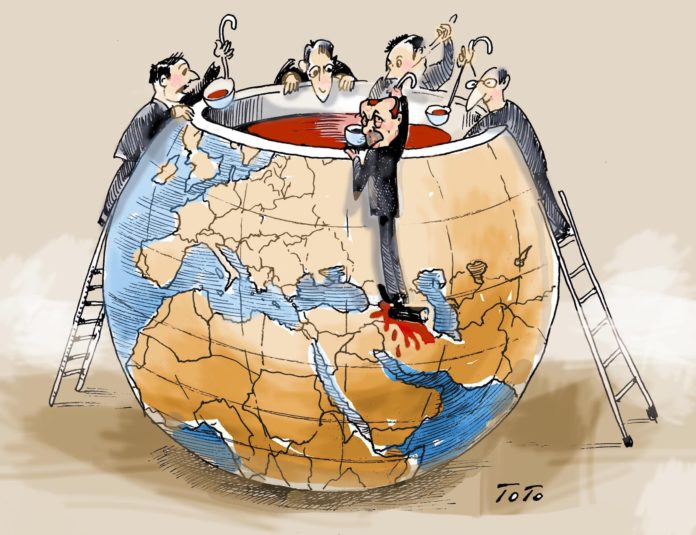The Karabakh conflict has seized headlines and netted global news coverage like never before, because this time around, major players have been involved directly, raising the tension to an international level.
For long, it was considered a frozen crisis, created by the fall of the Soviet Union.
The news media has its biases and parameters. Any incident, war or political development, has to be filtered through the same prism. In today’s Karabakh war, the parties involved, in addition to and behind the actual warriors, are Turkey and Russia.
Journalists have already resorted to formulaic characterizations of the actions of each faction; in the West, Turkey has to be presented in a favorable light, trying to find justifications for its actions, no matter how nefarious, because Turkey is a “trusted” NATO ally.
Conversely, Russia and its leader get a cold shoulder because in the lexicon of Western journalism, they have heir own description: authoritarian President Vladimir Putin sitting atop a decaying empire.
Since these two powers feature in the story of the Karabakh war, those biases overshadow the true reasons for the war.










